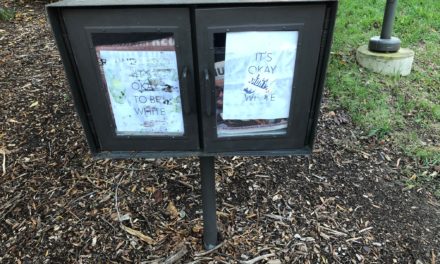Lawmakers met last Tuesday, September 6, to discuss the March 2011 proposed constitutional amendment to ban gay marriage, unions and partnerships in North Carolina. This amendment, if passed, would make marriage between a male and female the only legally domestic union in NC, so that relationship recognition of any kind would not be given to same-sex couples. Over the past few days and throughout the state, there have been vigils and rallies for the GLBT community and its allies to stand together in opposition to the amendment. One was held by Equality NC and featured country artist and member of the GLBT community, Chely Wright. Those against the changes were also encouraged to contact their state legislator and to show as much support as possible.
According to Equality NC, the legislature’s plans to enact the amendment are redundant because there are already North Carolina laws prohibiting gay marriage. Equality NC and democratic opponents in opposition also say that amendment is also detrimental to business in North Carolina. This means that state-operated health care providers could refuse to give domestic partner benefits due to those unmarried relationships not being recognize. This would also make any private employer benefits, which have in the past recognized domestic partnerships of any kind, void. It would also affect thousands of public employees, regardless of sexuality, by stripping the government of the right to extend the domestic partners of employees these benefits.
The amendment is also said to give the general image that North Carolina is “not welcoming of the diverse creative workforce that we need to compete in the global economy.” Several University of North Carolina School of Law professors made statements on the amendment, saying it “certainly will spur litigation, discourage same-sex and opposite-sex unmarried couples from living and working in North Carolina, adversely affect the ability of North Carolina businesses to attract talented employees, and encourage individuals seeking to undo their legal obligations to flock to North Carolina courts for relief.” There is also the possibility of same-sex couples not being protected in domestic violence situations, and not being able to enroll their children in school, which may stir even more people away from living and working in the state.
Democratic lawmakers and black clergy had clashing views on the amendment, mainly because of religious and racial standpoints. Several black pastors made statements that there is a need for this amendment, because it protects the traditional marriage and that gay rights are not civil rights. This stems from the viewpoint that race is unchangeable, but sexuality can be changed. Others in opposition believe that carrying out this bill and putting the amendment on the ballot is just an attempt to get a larger voter turnout of conservatives. Additionally, many believe this is a ploy to appeal to majority Democrat churchgoers, much like the black clergy, to vote Republican, since most possess Anti-GLBT beliefs. This is similar to what former president George Bush did in 2004 by endorsing an Anti-GLBT constitutional amendment, and even, according to the New York Times, meeting with several African American and religious leaders about the endorsement. As said on TheHill.com, “Conservative activists say it could become as big an issue in 2012 as it was in the 2004 presidential election, when Republicans pushed ballot-initiatives banning gay marriage in several states. That effort was seen as helpful to Bush’s reelection because it mobilized socially conservative voters.” GOP presidential candidates for the upcoming election have also endorsed the amendment.
Regardless, many members of the GLBT community emphasize that discrimination of any kind is wrong and as citizens their rights should be protected. Despite of the rise against the amendment, Tuesday, September 12, the House of Representatives passed the bill, 75-42, to have the gay marriage ban on the May 2012 primary election ballot. The Senate would need three-fifths majority vote for it to be placed on the ballot.
For more information on the proposed bills and how it may affect the rights of yourself and others, visit EqualityNC.org.






